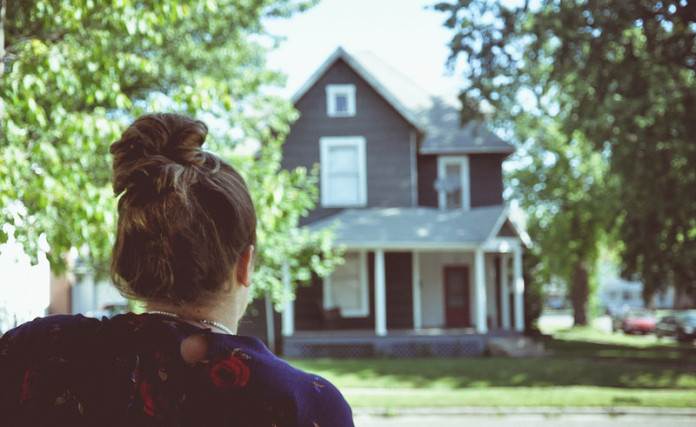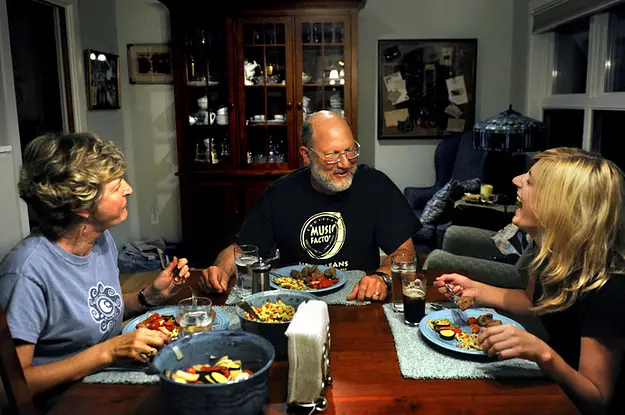Millennials and Their Moms
More and more students are living at home while they attend college and even after. Is that a bad thing?
By Alicia Drier, Roosevelt University
“When it came to choosing my perfect school, my options were limited. I’m paying for my own college education, and I’m not really interested in being thousands of dollars in debt by the time I’m done.”
Leah Shultz, a 22-year-old college student, tells a story of school selection and student debt that is not unique in 2017. With a mother working in the medical field and father in construction, there was never a question of whether or not she would go to college.
“For me, it was much more about which degree would actually help me do what I want with my future without jumping through too many hoops,” says Shultz.
This is the growing dialogue of many high school graduates—is college really worth the cost? “NBC News” writer Herb Weisman says the majority of millennials are thinking maybe not.
According to Weisman, “Forty-five percent of the 1,500 people responding to a nationally representative survey conducted in March by Consumer Reports National Research Center said college was not worth the cost. Of those who said college wasn’t worth the money: 38 percent didn’t graduate; 69 percent have had trouble making loan payments; 78 percent earn less than $50,000 per year.”

For those who bite the bullet and agree to a conventional college education, corners have to be cut. And this is why, according to “NPR” writer Camila Domonoske, “For the first time in more than 130 years, Americans ages 18-34 are more likely to live with their parents than in any other living situation.”
At first glance with an issue like this, it’s easy to blame it all on the money.
“Student loan debt is at an all-time high,” says “Forbes” writer Erik Sherman. “According to the Institute for College Access & Success, a study of 1,055 out of 2,010 public and nonprofit colleges showed the average debt load of students graduating in 2015 to range from $3,000 to $53,000. At the high end, 200 of the schools reported average debt of more than $35,000.”
It’s true there is a vicious cycle between finding a job that makes good money and affording an education that can help qualify you for such a job. In fact, many individuals are now finding themselves stuck in minimum wage jobs far beyond their college years. But, as more and more millennials stay living at home into their late twenties, studies are actually showing a greater cultural shift is taking place.
“Being in your twenties is no longer a guaranteed marker of adulthood. The life steps that are most associated with becoming a ‘real adult,’ like marriage, buying a home and having children, are now more likely than ever to be put off into one’s 30s,” says “Huffington Post” writer Shane Ferro. (See more about this topic here.)
This idea of extended adolescence may sound unsettling at first. “Atlantic” writer Jessa Gamble, however, argues this might be the best thing to happen for the future of humanity.
“‘Neurobiological capital’ is built through a protracted period of learning capacity in the brain, and it is a privilege that comes to those lucky enough to enjoy intellectually stimulating environments in late adolescence. Far from a contributor to emotional immaturity, the trend toward an adolescence that extends into the mid-20s is an opportunity to create a lifelong brain-based advantage,” writes Gamble.
“The central task of adolescence is to develop the ability to self-regulate—to manage stress so that it does not interfere with the ability to follow through on plans and delay gratification. In particular, connectivity develops between the prefrontal cortex, crucial for executive functions like attention and decision-making, and the limbic system that drives emotion and reward.” (Read more from this article here.)
Combine this extended opportunity for personal growth with the lower costs of community college, and it really should be a no-brainer as to why more and more students are living at home through college.
According to EducationCorner.com, “At a public university, tuition can be upwards of $8,000. It’s even higher at private universities. Add on other living expenses and the overall cost, also known as the ‘sticker price,’ averages over $20,000.
“Across the board, community college is much more affordable. The average tuition is half that of a public university.”
None of this is meant to say living at home is without its obstacles.
“There is not a lot of privacy, and it’s hard to study when my family is home. The only time I can really focus is when I am by myself. Plus, my parents still expect me to do household chores and keep a job while I’m in school. It can feel like a lot sometimes,” says Shultz.
And unfortunately money will always be part of the equation.
“In the world of enriching experiences and brain plasticity, as everywhere else, time is money. Parents who expect their children to make their way in the world after college, as they themselves did in the 70s and 80s, may be surprised to find they are not quite as obsolete as they had planned to be.”
So, what does this mean for current college students?
Put simply, “In a time when college graduates return to live under their parents’ roofs and top careers require years of internships and graduate degrees, the age of adulthood is receding, practically into the 30s. Adolescence, loosely defined as the period between puberty and financial independence, now lasts about 15 years, twice as long as it did in the 1950s,” writes Gamble.
Whether commuting from home or living on a college campus, this opportunity of extended adolescence should remind us all education is what we make of it. There is no longer one conventional college experience, and that’s actually really okay. We live in a vast world of choice and freedom, where the four year university experience can now only get you so far. And if you’re still living on your parent’s’ couch at age 32, you might not be as lame as you would have been 20 years ago.









